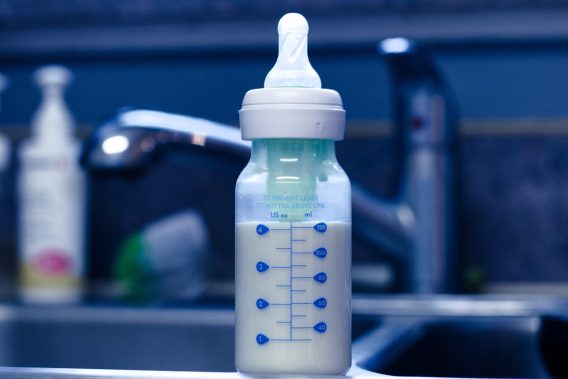Another Baby Formula NEC Lawsuit Fails – What’s Next for These Cases?

Despite a strong start in state court last year, hundreds of pending baby formula NEC lawsuits are now struggling to find a way forward.
Judge Rebecca Pallmeyer, who is overseeing more than 700 of these cases, issued a summary judgment ruling in Abbott Laboratories’ favor on Monday for what was set to be a critical trial. Summary judgment is when a judge awards a victory to one side of a lawsuit before the case goes before a jury.
This is the second time in the last few months that Judge Pallmeyer has awarded summary judgment to the formula manufacturers in these lawsuits, which claim that certain cow’s milk formulas cause dire intestinal issues when fed to premature infants.
Necrotizing enterocolitis, or NEC, can result in a hole forming in the intestine, allowing harmful bacteria to leak out and cause infection, according to the Cleveland Clinic. Lawsuits claim that the makers of popular formulas like Similac and Enfamil failed to warn customers of these possible risks.
Two summary judgment rulings in such a short span may mean that these lawsuits have a tenuous path forward in federal court. But there could still be hope for these lawsuits elsewhere.
Why the Baby Formula NEC Summary Judgment Rulings Matter
The hundreds of baby formula lawsuits before Judge Pallmeyer are grouped together through a process called multidistrict litigation (MDL).
MDLs are used when many similar cases are filed, placing them before one judge and allowing them to move through the legal process together in a streamlined way.
One of the goals of an MDL is to eventually hold bellwether trials. Instead of having hundreds of individual cases go to trial, which would be expensive and time-consuming, a handful of cases that are representative of the overall litigation are chosen.
If people who filed these lawsuits win the bellwethers, then the defendants could be encouraged to negotiate a wider settlement for all cases instead of risking taking more of them to trial.
But, so far, these baby formula lawsuits haven’t gotten bellwether cases in front of a jury. Judge Pallmeyer has now awarded summary judgment in both of the bellwethers to have their trial dates approach, in part due to concerns over expert testimony.
In this week’s ruling, for example, one key point of contention was a claim made by a marketing expert who was to testify in favor of the plaintiff. He argues that Abbott Laboratories intentionally targeted NICUs with marketing materials and free samples to secure contracts and ensure their products were used.
Judge Pallmeyer did not see a convincing link between that claim and the main issues of the lawsuits.
“…There is no evidence in this case that either Plaintiff or the physicians who treated [the child] relied on Abbott’s marketing materials in their decision to use Abbott’s infant formula,” she said in a court order.
Two more future bellwether cases now remain, with the next one initially scheduled for a November 2025 trial. It’s unclear if those upcoming cases will be able to overcome these expert testimony issues.
Could Baby Formula Lawsuits See More Success in State Court?
While the baby formula cases in federal court are struggling to make it to trial, this has not been the case in state courts.
In 2024, formula manufacturers Abbott and Mead Johnson suffered a pair of staggering defeats that, at the time, provided a positive outlook for families who had brought lawsuits.
A St. Louis jury awarded a hefty $495 million in July 2024 to the family of a baby girl who had developed NEC several years earlier after formula feeding. That verdict came just a few months after an Illinois jury handed out $60 million to the mother of an infant who died after being diagnosed with NEC in a similar case.
Abbott and Mead Johnson were able to secure a win in the third state trial, which took place in October 2024, but that win was later wiped out when the judge ordered a retrial.
If the judge overseeing the cases filed in federal court continues to award summary judgment to the defendants, then a hefty settlement for all of those cases negotiated through the MDL process may not be likely. But with many other lawsuits pending in state court, that could change down the road if families continue to secure major wins when their cases go to trial.




